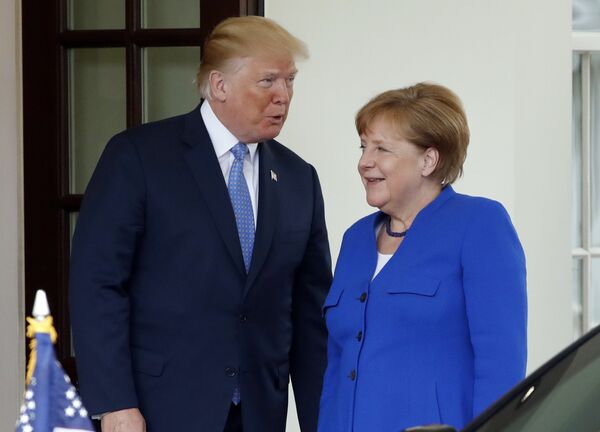The German armed forces, the Bundeswehr, will lose 33 billion euros from 2020 to 2023, German outlet Welt am Sonntag reports, citing the country’s Ministry of Defense's confidential "Financial Needs Analysis 2020".
The German government has recently passed a budget bill for the next year, which also includes financial planning until 2023. According to it, the German military will receive 44.9 billion euros in 2020, but the military spending is expected to drop from 44.1 to 43.9 billion euros starting in 2021. Thus the share of the military spending in the gross domestic product (GDP) will fall from 1.37 percent in 2020 to 1.24 percent in 2023 and moves even further from the NATO target of 2 percent.
The analysis, prepared by the Defence Planning Department, totalled the funds necessary for "achieving multinational objectives and national ambitions" and was completed in December 2018. It is said to have outlined the basis for the discussions between the Ministry of Finance and Ministry of Defence.
The document suggests that if compared to the needed budget, the current spending plan would lack six billion euros. In 2021 and 2022, the budget is expected to need 10 billion euros and 13 billion, respectively. By 2023, this shortfall is said to grow to 14 billion euros.
In this report, analysts from the Ministry of Defence pointed out that NATO tasks are expected to be impacted in particular, noting: “Numerous defence projects required to fulfill the NATO planning goals cannot be realised at all or cannot be realised on time”.

The budget plan has already prompted criticism within the Christian Democratic Union with the defence chief of the CDU parliamentary group in the German parliament, Henning Otte, accusing the government of underfinancing the Bundeswehr. The politician, cited by the outlet, noted that the current financial planning was insufficient "to ensure the security of Germany".
The US Embassy has not stayed away from the debates, as well, and lambasted Angela Merkel’s government for this plan. "The Federal Government has explicitly committed to its NATO allies to increase defence spending to two percent of GDP by 2024 - and not to move further from that goal”, embassy spokesman Joseph Giordono-Scholz said, noting that the allies relied on "the German promises".
The current US administration and President Donald Trump, in particular, has argued that the US is bearing the brunt of the burden in the alliance, while others underperform and spend less than the voluntary goal of 2% GDP set in 2014. The US commander-in-chief even reportedly threatened to pull the US out of NATO if the situation doesn't change. He specifically slammed Germany stating that Berlin "is not paying their fair share".Although Germany disregarded Trump's demands to do it "now", it announced plans to increase military spending up to 1.35% in 2019 and unveiled a further goal of boosting the number up to 1.5% by 2023.
Just a couple of weeks ago, German Chancellor Angela Merkel stated that Berlin will boost its defence budget next year in line with a gradual increase that has been taking place recently. However, efforts to push the spending boost by the country’s Defence Minister Ursula von der Leyen failed because the purse strings are held by the CDU coalition partner, the Social Democrats, whose member Olaf Scholz is the head of the Ministry of Finance.


